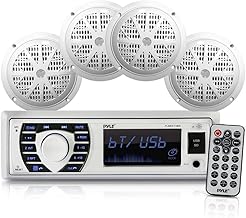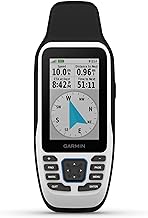5 important factors worth considering when looking for the best handheld marine gps
Choosing the right handheld marine GPS can be overwhelming, whether you’re a passionate boater or a professional sailor. It’s important to look beyond just the specs and prices and focus on key factors that can improve safety and performance on the water. Elements like accuracy, durability, ease of use, and extra features all play a vital role in how well a handheld marine GPS works. In this article, we’ll discuss the most important factors to consider when making your decision, so you can make sure your investment meets and exceeds your expectations when you’re out at sea.
See our guide to the best handheld marine gps.
Accuracy of GPS signals
When buying a handheld marine GPS, it’s important to consider how accurate the GPS signals are. Having reliable navigation equipment is crucial when you’re out on the water. While many handheld marine GPS devices have cool features, it’s essential to make sure the GPS signals are accurate. Even a small mistake in your coordinates can lead to getting lost or missing your destination, which can be dangerous. So, it’s important to choose a device that is known for its precise GPS signal accuracy if you love boating.
In addition, the accuracy of GPS signals is key to improving your boating experience. Just imagine smoothly navigating through complex waterways, finding exact locations easily, and reaching your destinations without any hiccups—all because of the accurate GPS signals from your device. This smooth navigation not only gives you a sense of security and confidence but also lets you enjoy your time on the water without worrying about mistakes or errors. Prioritizing accurate GPS signals when buying a handheld marine GPS isn’t just about safety—it’s about taking your boating experience to a whole new level of precision and efficiency.
Ease of use and user interface
When buying a handheld marine GPS, it’s important to consider how easy it is to use. Why get a device that makes your boating trips complicated with confusing menus and functions? A user-friendly interface not only makes your experience better but also helps you navigate the water efficiently. Picture being able to easily input waypoints, adjust settings, and see important information with just a few taps on the screen. A well-designed GPS can make a big difference, especially when you’re at sea where time is crucial.
A messy and unclear user interface can ruin a promising expedition and make it frustrating. The last thing you want while out on the water is struggling with a system that confuses you. A simple and easy-to-use interface should help you focus on your journey instead of dealing with unnecessary complications. Choosing a handheld marine GPS that focuses on ease of use not only improves your safety but also lets you enjoy your time on the water to the fullest. It ensures that your experience is smooth and enjoyable.
Battery life and power source
When it comes to choosing a handheld marine GPS, the most important things to consider are the battery life and power source. These factors can greatly impact your boating experience. Picking a GPS with a long battery life will ensure that it stays reliable during long trips without worrying about it dying. A strong power source not only helps the GPS work better but also makes your marine adventures more efficient. The last thing you want is to get stuck or lost on the water because your GPS ran out of battery.
Getting a handheld marine GPS with a durable battery life and flexible power source can really improve your boating trips. By focusing on these features, you’ll not only boost your safety and navigation skills but also make your boating setup more reliable. Keep in mind that water conditions can be unpredictable, so having a trustworthy handheld marine GPS that doesn’t fail in terms of battery life and power source can make the difference between a smooth trip and a risky one.
Water resistance and durability
When you buy a handheld marine GPS, it’s important to consider how resistant it is to water and how durable it is. These features are not just nice to have, they are necessary for navigating tough marine environments. A GPS that isn’t water-resistant can stop working if it gets wet, leaving you without important navigation help. It’s also important for the GPS to be durable, as marine activities can be rough and need a device that can handle rough treatment.
Getting a handheld marine GPS that is highly water-resistant and durable is not just convenient, it’s a smart choice to keep you safe and give you peace of mind on the water. A device that can handle water splashes, rain, and accidental submersion will not only survive the elements but also keep giving you accurate and reliable navigation when you need it most. Choosing a tough and water-resistant handheld marine GPS is a good idea for anyone who loves water activities and wants to have a worry-free and fun time on the open sea.
Mapping and navigation capabilities
When looking at handheld marine GPS devices, the most important thing to consider is their mapping and navigation capabilities. These features are crucial for a safe and successful voyage on the water. Having a strong GPS system with detailed marine charts can make a big difference between a smooth sailing trip and getting lost at sea. It’s important to choose a device that has accurate and up-to-date mapping data so boaters can navigate confidently, especially in unfamiliar or difficult waters.
Nowadays, modern handheld marine GPS units come with advanced features like real-time updates, points of interest markers, and customizable mapping options. These features help users plan routes and navigate effectively. Additionally, a handheld marine GPS that can connect with other marine electronics, like fish finders or radar systems, can be very useful for boaters. Integrating mapping and navigation functions makes boating more efficient, with important information easily accessible.
Whether you’re cruising along the coast, fishing in open waters, or navigating challenging conditions, a reliable handheld marine GPS with top-notch mapping capabilities can be your best companion on the water. It provides peace of mind and ensures a safe and enjoyable journey on the high seas.
Conclusion
Handheld marine GPS devices are essential tools for sailors and watersports enthusiasts, providing precise navigation and reliable information on weather conditions and tides. These devices are compact, yet packed with features to guide mariners through unpredictable waters with accuracy. As technology advances, handheld marine GPS units continue to prove themselves as indispensable companions for those who love to explore the ocean.

